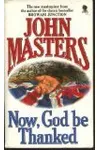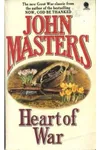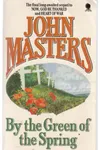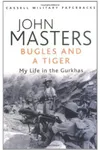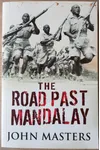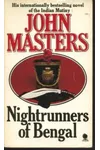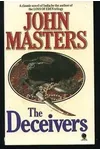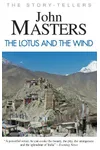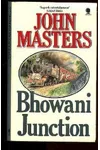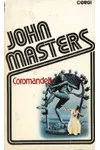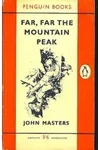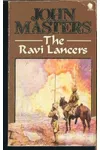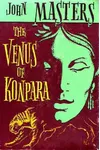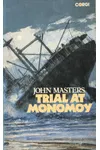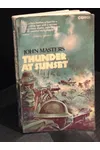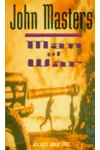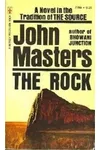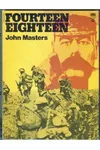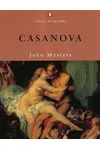Picture a British storyteller who swapped a soldier’s rifle for a pen, weaving tales of empire and adventure—meet John Masters! Born in 1914 in Calcutta, this Indian Army officer turned novelist captured the drama of British India with his vivid historical fiction. His Savage Family Chronicles, spanning 320 years, blends military grit with cultural nuance, offering a front-row seat to the Raj’s rise and fall.
Masters’s life was as thrilling as his novels. From battling on the Northwest Frontier to penning bestsellers in New Mexico, he lived across continents and eras, leaving a legacy that still captivates readers hungry for immersive storytelling.
The Making of John Masters
Born into a family steeped in Indian Army tradition, John Masters grew up in Calcutta, surrounded by the sights and sounds of British India. Educated at Wellington and Sandhurst, he joined the 4th Gurkha Rifles in 1934, serving on the turbulent Northwest Frontier. His early years were marked by daring escapades—like organizing a leopard hunt that ended with him slaying a tiger! World War II saw him lead Chindits behind enemy lines in Burma, earning a DSO for bravery. These experiences shaped his storytelling, infusing his novels with authentic military and cultural detail.
After the war, Masters left the army and moved to the United States, initially trying to launch a Himalayan trekking business. When that flopped, he turned to writing, channeling his adventures into fiction that would define his legacy.
John Masters’s Unforgettable Stories
Masters’s novels are a love letter to India’s complex history, told through the lens of the fictional Savage family. His Savage Family Chronicles, a series of seven novels, traces the British in India from the 17th century to independence. Nightrunners of Bengal (1951) kicks off the saga during the 1857 Indian Rebellion, following Captain Rodney Savage as he navigates loyalty and betrayal in a fracturing empire. Bhowani Junction (1954), later a film starring Ava Gardner, explores the Anglo-Indian identity crisis during partition, blending romance with political intrigue.
Other gems include The Deceivers (1952), a gripping tale of a British officer infiltrating the Thuggee cult, and The Lotus and the Wind (1953), a spy thriller set during the Great Game in Afghanistan. Masters’s style is vivid yet empathetic, capturing the splendor and tensions of British India. Indian novelist Khushwant Singh praised him, saying, “While Kipling understood India, Masters understood Indians,” highlighting his nuanced portrayal of local characters.
His writing isn’t just action-packed; it’s a cultural bridge, reflecting the clash and connection between British and Indian worlds. Though some critics label his work as nostalgic for empire, others see a sophisticated critique of imperialism’s contradictions, akin to E.M. Forster’s A Passage to India.
Why John Masters Matters
John Masters brought British India to life for generations, blending historical accuracy with emotional depth. His novels offer more than adventure—they’re a window into the human side of empire, from the loyalty of Gurkha soldiers to the struggles of Anglo-Indians during independence. His work inspired BBC radio serials and films, cementing his influence in historical fiction.
Today, Masters’s books remain a treasure for readers curious about the Raj’s twilight. His ability to humanize history, paired with his insider’s perspective, ensures his stories resonate, even as debates about imperialism evolve. He wasn’t just a novelist; he was a chronicler of a lost world.
- Born: October 26, 1914, Calcutta, India
- Died: May 7, 1983, Santa Fe, New Mexico
- Key Works: Nightrunners of Bengal, Bhowani Junction, The Deceivers
- Notable: Served with Chindits in WWII; DSO recipient
Ready to explore a world of empires and intrigue? Snag Nightrunners of Bengal and dive into John Masters’s thrilling historical fiction!
